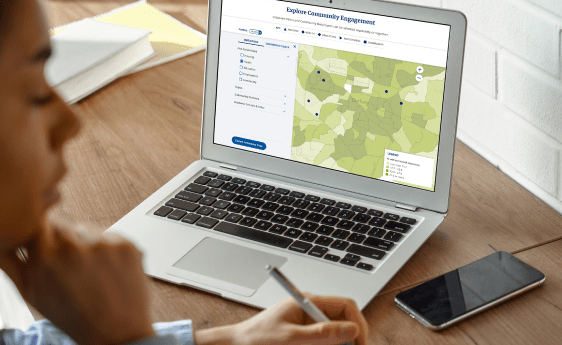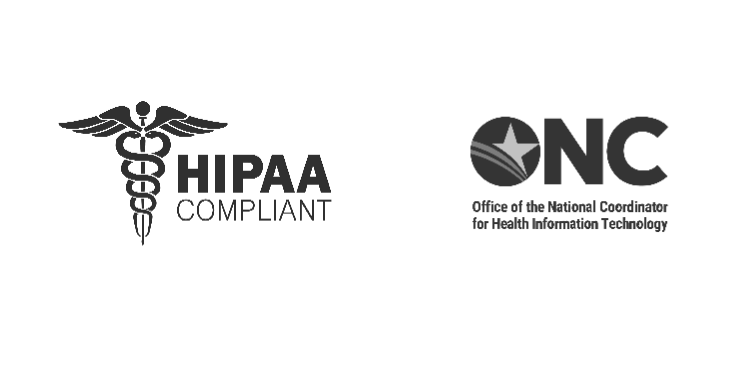Never Alone RPM platform helps older adults age in place
case study highlight
SDOH Medical Research Platform
AMC research platform to support community partners.

Healthcare SaaS solutions streamline complex care delivery processes, providing seamless access to essential services and data. These platforms facilitate efficient management of patient information, enhance collaboration among healthcare professionals, and improve decision-making through integrated analytics. SaaS platforms ultimately elevate patient care and optimize health outcomes.

Never Alone RPM platform helps older adults age in place
Patient-focused SaaS applications are designed to empower individuals by providing them direct access to health management tools. These applications enhance patient engagement through features such as patient portals, telemedicine, appointment scheduling, and mobile health tracking apps. They aim to improve patients’ access to healthcare information and services, enabling better personal health management and communication with healthcare providers.
Provider-focused SaaS solutions are essential for healthcare professionals looking to enhance clinical and operational efficiencies. These applications, including Electronic Health Records (EHRs), practice management software, and clinical decision support systems (CDSS), support healthcare providers in managing patient care, clinical data, and administrative tasks more effectively. They facilitate real-time communication among medical teams and integrate various healthcare services to streamline workflows.
Payer-focused SaaS applications assist insurance companies and other healthcare payers in managing claims processing, billing, member enrollment, and fraud detection efficiently. These tools support the financial and administrative aspects of healthcare coverage, helping payers streamline operations, ensure compliance, and maintain effective communication with healthcare providers and beneficiaries.
Platforms that enable virtual healthcare delivery by connecting patients with healthcare providers through video calls, messaging, and digital consultations. Vital for accessibility and scalability, particularly demonstrated during health crises like the COVID-19 pandemic.
Utilizes data from healthcare interactions to provide actionable insights, employing big data, AI, and machine learning to predict trends and optimize clinical and operational practices.
Allows healthcare providers to monitor patients remotely using devices that capture data on vital signs and other health metrics, crucial for managing chronic diseases and reducing hospital visits
Facilitates the integration of various electronic health records systems, ensuring seamless data exchange across different healthcare providers, crucial for improving care continuity and interoperability
Web-based portals that enable direct patient access to health records, appointment scheduling, and communication with providers, enhancing patient engagement and improving treatment adherence and satisfaction.
Manages administrative tasks in medical practices such as scheduling, billing, and patient tracking, customized for specific practice types to enhance operational efficiency.
Ensures healthcare providers meet stringent regulatory requirements and protect patient data, crucial for compliance with laws like HIPAA and maintaining trust and security.
Specialized platforms for managing behavioral health, integrating tools for appointment scheduling, patient management, and secure therapist-patient communication, supporting accessible and confidential mental health services.
AMC research platform to support community partners.

Data Security
Regulatory Compliance
Scalability & Flexibility
Interoperability
Reliability and Uptime
User Experience (UX)
Data Analytics and Reporting
Integration Capabilities
Patient Engagement
Essential for protecting sensitive patient information. SaaS solutions must incorporate advanced encryption, secure data storage, and robust authentication mechanisms to ensure data privacy and integrity.
Must adhere to healthcare regulations like HIPAA, GDPR, and other local standards. This involves implementing strict protocols for data handling, access controls, and regular compliance audits.
SaaS platforms should be able to scale to accommodate growing user bases, increasing data volumes, and evolving functionalities without compromising performance.
Essential for integrating with existing healthcare systems, such as EHRs, lab systems, and pharmacy systems. This ensures consistent data flow and accurate patient information across platforms.
High reliability and minimal downtime are critical for healthcare applications. SaaS providers must ensure robust infrastructure, disaster recovery plans, and regular maintenance.
Must offer intuitive and accessible interfaces tailored to the diverse needs of healthcare providers, patients, and administrative staff. Accessibility features and ease of use are paramount.
SaaS solutions should provide advanced analytics and reporting capabilities to help healthcare providers make data-driven decisions and improve care delivery.
Should seamlessly integrate with other healthcare systems and devices to ensure data accuracy and consistency. This includes API integrations and support for various data formats.
SaaS applications should include features that engage patients in their healthcare journey, such as personalized health plans, educational resources, and direct communication channels with providers.
Launch a new service or product in as little as 8 weeks
Consulting services for technology integration in Value-Based Care.
An evaluation to guide critical business strategies and decisions.
HIPAA compliance is crucial for ensuring the security and privacy of Protected Health Information (PHI). At Digital Scientists, our extensive experience with PHI underscores our commitment to developing custom solutions that adhere to stringent data protection standards. This expertise not only helps prevent data breaches but also positions us as a trustworthy partner in the healthcare sector, adept at navigating complex regulations and maintaining the confidentiality and integrity of sensitive information.

Digital Scientists has a dedicated team skilled in developing Software as a Service (SaaS) solutions for the healthcare industry. Our expertise encompasses crafting intuitive user interfaces, ensuring robust data security, and integrating SaaS applications with existing healthcare systems to optimize patient care and enhance operational efficiency.
Our SaaS solutions enhance healthcare delivery by providing scalable and accessible platforms for managing electronic health records, patient engagement, and telehealth services. These systems facilitate real-time data analysis, improved decision-making capabilities for providers, and seamless patient interactions, all of which contribute to more effective and efficient healthcare services.
We develop a diverse range of healthcare SaaS solutions, including electronic health record systems, telemedicine platforms, patient management systems, and data analytics tools. Each solution is specifically designed to meet the distinct needs of healthcare organizations and their clientele.
Yes, we specialize in the seamless integration of SaaS applications with existing healthcare infrastructures, such as EHR systems and clinical management platforms. Our integration ensures that new SaaS solutions enhance current operations and provide a cohesive user experience without causing disruptions.
Our process for developing custom SaaS solutions involves an initial consultation to understand client needs, followed by the design and development of the application, rigorous security and compliance testing, system integration, and ongoing support to ensure the solution continuously meets the evolving requirements of the healthcare sector.
We adhere to strict industry standards, such as HIPAA in the U.S., to ensure that our SaaS solutions are secure and compliant. Our security measures include implementing advanced encryption methods, secure data storage and transfer protocols, and comprehensive user authentication processes.
We offer comprehensive post-deployment support services, which include technical support, regular system updates, performance monitoring, and user training to ensure optimal functionality and adaptation to the changing healthcare and technology landscapes.
Our SaaS solutions improve patient outcomes by enabling better health monitoring, personalized treatment recommendations, and more effective communication between patients and healthcare providers. These capabilities assist in the early detection of health issues and facilitate timely medical interventions.
Building effective healthcare SaaS applications requires diverse datasets, including comprehensive patient health records, real-time monitoring data, and patient engagement metrics. Our approach ensures that all data is managed with the utmost confidentiality and integrity, respecting patient privacy and regulatory requirements.
The timeline for implementing a custom SaaS solution in healthcare varies based on the complexity of the application and the specific needs of the client. Typically, projects can range from several months to over a year, encompassing all stages from initial design to full deployment and integration.